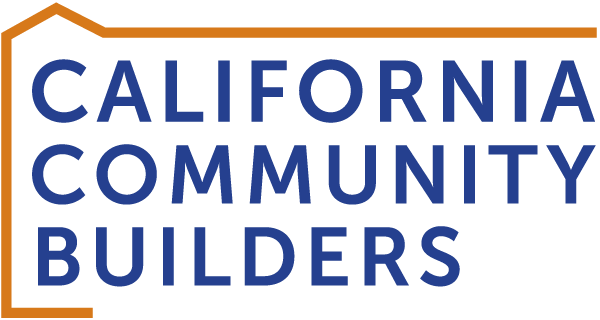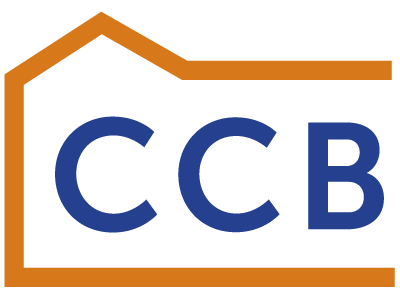CCB’s 2021/2022 Student Goodbye Roundtable
Left to right: Minhal Hanif, who has graduated from UC Davis and is starting a new position at Richmond Promise, supporting low-income students’ access to higher education; Moorea Benmosche, who is a rising senior at UC Berkeley and off to Barcelona for the summer to study city planning; Hannah Phalen, who has graduated from UC Berkeley’s Goldman School of Public Policy and is joining Coro as an incoming Fellow supporting public housing rehabilitation in Richmond, California
Hannah: Let’s start by talking about why housing policy is important to us.
Moorea: Housing crises aren’t going away; they’re only becoming more and more urgent problems that need to be solved. It’s crucial that we pay attention to these problems and come up with creative solutions to begin to mitigate further life-altering effects of past housing policy failures.
Minhal: Having adequate living standards is a basic human right, but the housing crisis continues to worsen every day. So, I’m interested in housing policy/research because these issues have been overlooked for long enough and we need to act now to repair the damage done by this crisis and to ensure a future with no housing crisis.
Hannah: For me, solving our housing supply shortage is one of the most complicated issues due to so many seemingly opposing interests that often halt progress. The key is finding what each different group has in common to move progressive policies forward.
Minhal: Speaking of complicated issues, I feel like we all worked on so many different topics and projects in our time here. What would you say is the most interesting or surprising thing you learned at CCB?
Hannah: One of the first, and still most surprising, things that I learned at CCB was that while renters and aspiring homeowners may seem to receive more direct aid for housing, current homeowners actually receive more federal housing related expenditures in the form of the mortgage interest deduction, real estate tax deduction, and capital gains exclusions. I wish we put more subsidy into first-time homebuyers and those who really need the help rather than every homeowner, including subsidizing vacation homes.
Moorea: Overall, working at CCB has shown me that everything really does take a village. Real work gets done when different communities come together with a common goal to collectively advocate for their needs. I was also surprised to find out that working on serious issues doesn’t mean you always have to be serious. CCB does a great job of balancing the need for diligent work while also prioritizing regular mental check-ins and staff bonding time.
Minhal: I was surprised to learn the role that banks play in community building and investing in low-income communities through the Community Reinvestment Act. I was even more interested to learn about CRA reform. Considering the discriminatory history of banks, why the CRA came to be, and the ways in which it is effective or ineffective today all really informed my understanding on banks and how the CRA can be used to advocate for low income communities in various fields, extending beyond housing as well.
Moorea: Okay, I have a two-part question. How do you see your work at CCB contributing to the work you want to do in the future? And where do you see yourself in five years?
Minhal: I feel like being at CCB has shown me how to use community connections and resources to be an advocate and in five years I hope to see myself continuing to be an advocate, hopefully for students in helping them pursue college and higher education.
Hannah: Through my work at CCB, I’ve learned how to use a racial equity lens in solving the housing shortage and will make sure to consider how policies contribute to the racial wealth gap throughout my career. In five years, I see myself working for a government agency in California working on housing policy!
Moorea: CCB has solidified my interest in housing policy beyond what my undergraduate classes are capable of teaching. The organization has shown me how policy work and advocacy get done in the context of real-world stakes and constraints. And hopefully in five years I’ll be approaching graduation from a city planning graduate program!
Hannah: What would be your advice for the next student leader to come through CCB?
Moorea: Don’t be afraid to ask questions! Everyone at CCB values students’ input and is always excited to hear new perspectives.
Hannah: I agree. Also, when starting a project you’ve never done anything like before, believe in yourself that you will get it done and you will have all the support you need to make it happen.
Minhal: https://leginfo.legislature.ca.gov/faces/billSearchClient.xhtml - Get familiar with it :)
Minhal: What’s something you’d like people to know about CCB that they might not if they don’t work here?
Moorea: CCB isn’t just an organization, it’s a family. We start every meeting with check-ins and updates on exciting life updates before diving into our work tasks. CCB is a tight-knit group with an insane amount of passion and networks that accomplishes tangible goals within the housing policy sphere without draining its employees. #greatplacetowork
Hannah: We work very closely with so many other organizations and the CCB family extends much larger than our small staff! Also, every person on our team supports each other’s long-term career goals and our personal well-being.
Minhal: Every person at CCB is deeply invested in not only the success of our goals of an organization, but also the success of each individual person on the team. If you need support or have questions, know that everyone here is incredibly supportive, kind and understanding.
Moorea: I think we’re running out of time, but I have one last question. What was the biggest difference between working for the founder John and current CEO Adam?
Minhal: Under John I learned to read handwriting that would be illegible to everyone else in the world and under Adam I learned that no excel sheet is ever perfect.
Hannah: We could always expect to start a meeting with John with a long history about how some policy or important funding source came to be. With Adam, we would start a meeting by putting us all on the spot with silly ice breakers.
Moorea: Both John and Adam bring unmatched levels of passion and heart to the work CCB does. But in terms of differences, I’d say the transition pushed me to get out of my Google comfort zone and learn how to use Microsoft Suite programs. We love diversifying our skillsets!
All: We loved working at CCB and are so grateful to have had the opportunity to meet each other and the rest of the staff. CCB has brought us what we know will be life-long relationships and new perspectives about the complexities of housing policy and what can be done to achieve progress for low-income communities of color. And with that, CCB Leadership Academy Class of 2021/2022 is out!


